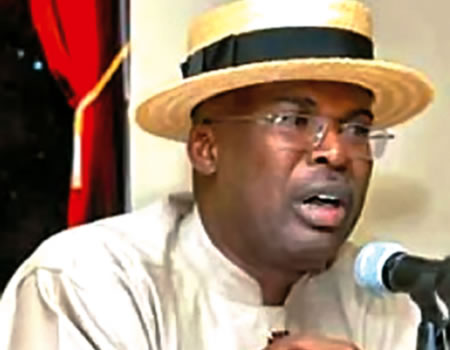Experts have suggested that for African countries to attain their energy security, they must look inward in addressing their oil and gas funding challenges in the face of dwindling financing from multinational financial institutions.
Those who spoke at the inaugural Africa Local Content Investment Forum organized by the Nigerian Content Development and Monitoring Board (NCDMB) in Lagos affirmed that it was high time governments across the continent began to look inward and formulate policies that enable indigenous companies to develop the capacities to explore and develop its natural resources for the benefit of the huge populations.
They posited that Africa’s energy demand in 2035 will be 40% higher than it is today, compared to 10% higher for global energy demand adding that the growth will be driven by industrialization, population and expansion in economic activities.
Nigeria’s Minister of State for Petroleum Resources, Chief Timipre Sylva said the theme of the forum ‘’ Evolving A Pan-African strategy towards sustainable funding of Africa oil and gas projects’ was apt as it demonstrates the federal government’s commitment to redefine and open up new frontiers for funding hydrocarbon development for economic growth, job creation, technology development and energy security.
While saying the objective of the forum was to mobilize African Financial institutions towards funding African oil and gas projects, the minister declared: “Without doubt, the emerging trend where leading multinational financial institutions are factoring environmental, social and corporate governance in their lending decisions, and the seeming freezing of equity investment in upstream field development projects by international oil companies is a wakeup call for Africa to provide alternative funding to sustain hydrocarbon development and energy future.
“Africa has over 120 billion barrels of proven crude oil and about 600 trillion cubic feet of proven gas reserves and for Africa to attain energy security and in-continent value addition it must address limitations such as the dearth of funds to finance its oil and gas projects; limitations in technology mastery to manage the oil and gas industry; high-end skills gap; inadequate energy infrastructure to sustain oil and gas industry operations; an underdeveloped internal market for hydrocarbon derivatives and overdependence on sale of crude oil for foreign exchange and budget financing.”
The Minister, who was represented by the Permanent Secretary in the ministry, Dr Nasir Gwarzo said Africa’s energy transition should be anchored on maximising fossil fuels (gas) utilisation and investment in renewable energy projects. With over 600 million people living without access to modern energy, Africa’s energy demand in 2035 will be 40% higher than it is today, compared to 10% higher for global energy demand. This growth will be driven by industrialisation, population and expansion in economic activities.
“The present realities make it compelling for the forum to design strategies for closing the gaps, propel sustainable growth and optimise utilisation of Africa goods and services across major global markets.
“A holistic outlook of the continent’s oil and gas infrastructure requirements include upstream field development projects, pipelines, depots, terminals, refineries, petrochemical plants, and oil and gas research and development and training institutions all of which require huge funding.
“The local content programme for Africa can only be impactful in our various economies if there is a pipeline of projects that will sustain the utilisation of capacity and capabilities developed of being developed in the industry.”
He urged the forum to incorporate the Africa Continental Free Trade Area agreement which he said its growth aspirations can only be actualised if we have a vibrant oil and gas sector.
Executive Secretary of the Nigerian Content Development and Monitoring Board (NCDMB) Mr Simbi Wabote said the continent needs the energy to fuel its development and economic activities.
According to Wabote: “The African electricity requirement was estimated to be about two (2) terawatts out of which a paltry 162 gig watts or less than 10% is generated. Over 640 million people, resenting about half of the population in Africa have no access to electricity while others half with access have an unrealisable supply of electricity.
“The challenge of inadequate energy is partly the reason why Africa is faced with poverty, conflicts, migration, and brain drain and ranks very low on human development index.
“The quest for energy transition, as it is being advocated in some European countries and other parts of the world are now taking the central stage and as this trend progresses, the hydrocarbon resources in Africa are becoming endangered resources.
“The unfolding scenario is of huge concern to African leaders and policymakers in the oil and gas industry. It is therefore critical that we explore the necessary steps required to address this funding and investment challenge so that our hydrocarbon resources are not abandoned below the surface like many African countries including Nigeria abandoned their coal mines.”
Also speaking, Secretary-General of African Petroleum Producers Organisation (APPO), Dr Omar Farouk Ibrahim declared that If Africa failed to re-strategize and come up with a new model, it risked losing the 125 billion proven crude oil reserves and the hundreds of trillions of proven gas reserves stranded assets.
His words: “APPO believes that the salvation of Africa lies in cooperation and collaboration and we are prepared to work with institutions that share our concern for the development of our continent. If we see energy security as critical to our national security, we should enact laws that provide for a portion of windfalls from oil and gas sales to be reinvested in the industry.
“We need to find a way and ways of getting African oil and gas producing countries governments to commit to a certain percentage of the windfalls to a special fund for the sustenance of the oil and gas industry during the transition period. A guaranteed source of revenue is the only guarantee for the success of the new order we want to see in Africa.
“It is high time Africa understood that its salvation lies in its own hands; we cannot continue to look outside for help to save ourselves. We cannot discard what we have in abundance for what we do not have. We will not change one form of dependence for another.”
IN CASE YOU MISSED THESE FROM NIGERIAN TRIBUNE
- ‘Officials initially offered to help but when the number of able-bodied citizens at the centre increased, they left us unattended to’
- Why Ogun Tops List Of ‘Yahoo Boys’ In Nigeria ― Governor Abiodun
- Police, Amotekun after criminals on Lagos-Ibadan expressway
- Suspected cannibal pays N500,000 for boy’s human organs, says ‘that’s my favourite meal, especially the throat’
- Court awards Nnamdi Kanu N1 billion over invasion of his home by military, asks FG to apologise
WATCH TOP VIDEOS FROM NIGERIAN TRIBUNE TV
- Let’s Talk About SELF-AWARENESS
- Is Your Confidence Mistaken for Pride? Let’s talk about it
- Is Etiquette About Perfection…Or Just Not Being Rude?
- Top Psychologist Reveal 3 Signs You’re Struggling With Imposter Syndrome
- Do You Pick Up Work-Related Calls at Midnight or Never? Let’s Talk About Boundaries







